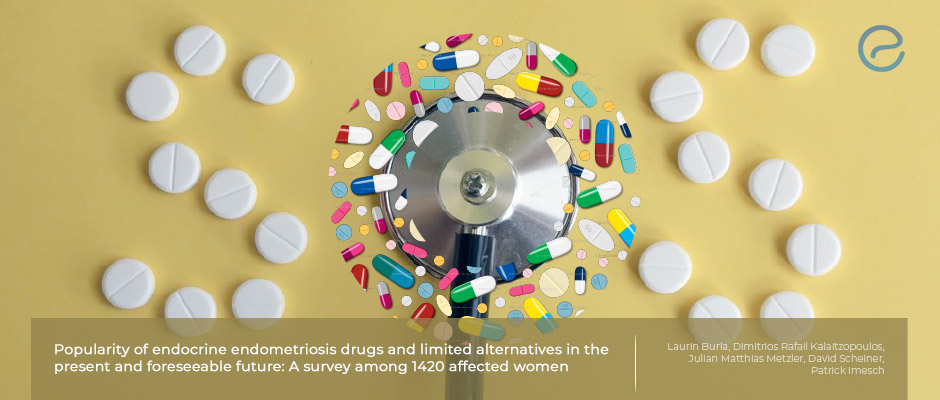Women reject using hormonal drugs for endometriosis, an accelerating need for nonhormonal medications
Jul 14, 2021
Only one in 10 patients are satisfied with the current endocrine endometriosis drugs.
Key Points
Highlights:
- Endocrine drugs are used for pain and inflammatory process reduction in endometriosis. Well-educated women are rejecting the use of hormonal drugs.
Importance:
- The present study focused on the beneficial and adverse effects of endocrine drugs for endometriosis treatment.
- This study aimed to analyze the patients’ attitudes and perceptions of endocrine drugs.
What's done here:
- The self-reported form about patients’ opinions regarding endocrine drugs, were filled by endometriosis patients who received or receiving endocrine drugs for endometriosis.
- Demographic properties such as age, education status, religion, relationship, and living place were noted; patients answered the questions about their attitudes and satisfaction with endocrine drugs.
- A total of 1420 patients diagnosed with endometriosis, internet users interested in endometriosis and endometriosis-related parameters, and patients in endometriosis support groups were included.
Key Results:
- Forty-one percent of women had university education level and 44.3% of women had a relationship.
- More than half (57.5%) of patients with endometriosis currently used hormonally active drugs and 80% of patients had a history of using combined oral contraceptives.
- The second most commonly used drugs were gestagens with a rate of 68% (962 patients).
- Totally, 935 (66%) patients were not satisfied with currently available endometriosis medication, and only 18 (1%) patients and 149 (11%) patients were very satisfied and satisfied with endocrine endometriosis drugs.
- Also, most patients (66%) perceived the bad reputation of endocrine drugs from the internet, and 64% of patients had negative opinions about these medications.
- Most patients (n=1242) preferred non-hormonally active drugs instead of hormonally active drugs.
Limitations:
- The survey nature of the present study may be a limitation of the study.
- The patients were included in the study according to their own statements about endometriosis, not with hospital records.
- This study did not focus on the period of endometriosis symptoms and the duration of drug use.
Lay Summary
Although the pathophysiology of endometriosis is poorly understood, endocrine drugs are widely used for reducing inflammation and patients’ symptoms.
Burla and colleagues aimed to evaluate the patients’ thoughts and expectations about the endocrine drugs which are used in the treatment of endometriosis and analyzed a total of 1420 patients’ answers to their survey.
Results showed that 57.5% of patients with endometriosis currently using hormonally active drugs to treat endometriosis and combined oral contraceptives (80%) were the most common among them. In addition, more than two-thirds of patients indicated that they were not satisfied with currently available endocrine medications for endometriosis, and only and 11% of patients stated that they were satisfied with endocrine endometriosis drugs.
Eighty-eight percent of patients preferred non-hormonally active drugs instead of hormonally active drugs. The pill form was the most preferred (55.7%) form.
In this study published in the July issue of the journal "European Journal of Obstetrics Gynecology and Reproductive Biology", the authors concluded that the rejection rates of endocrine drugs among women is an alarming issue that should lead researchers to nonendocrine drugs which would target different mechanisms in endometriosis pathophysiology.
Research Source: https://pubmed.ncbi.nlm.nih.gov/34091158/
endocrine drugs satisfaction endometriosis hormone pain pill inflammation oral contraceptive

